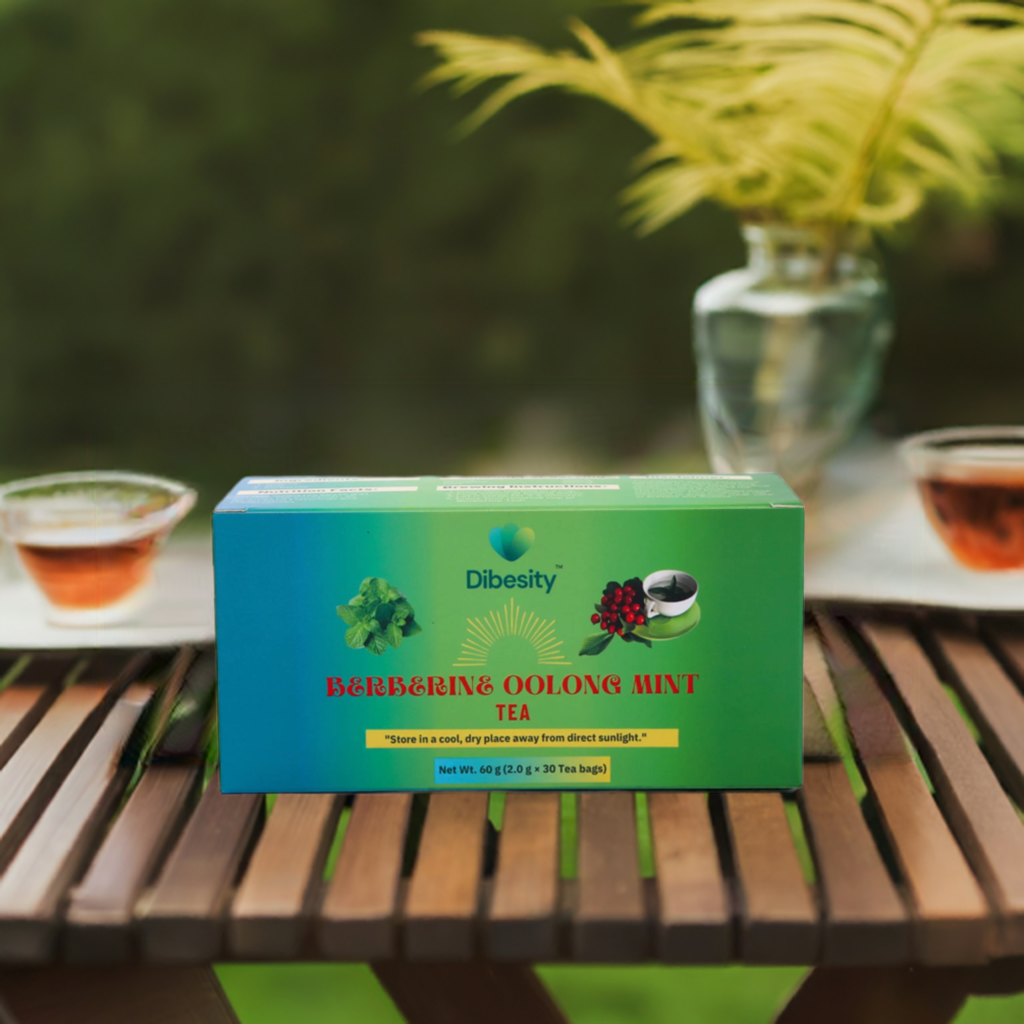Berberine is a bioactive compound predominantly found in several plants, most notably Goldenseal, Barberry, and Oregon Grape. This alkaloid has garnered significant attention in both historical and modern medicinal practices, particularly for its diverse health benefits.
Originating from traditional Chinese and Ayurvedic medicine, berberine has been utilized for centuries to treat a variety of health conditions, including gastrointestinal disturbances, infections, and inflammatory diseases.
The historical usage of berberine highlights its importance in holistic healing traditions. In Chinese medicine, it was often employed to clear heat and toxicity from the body, as well as to improve digestion and support liver function.
Similarly, Ayurvedic practitioners valued berberine for its ability to balance the body’s doshas and promote general well-being. This diverse application demonstrates berberine’s profound influence on ancient and contemporary health practices.
Recent scientific research has positioned berberine as a potential natural remedy for various modern ailments. One area of interest is its properties as an anti-inflammatory and analgesic agent, which may contribute to its efficacy in treating migraine headaches.
By modulating pathways associated with pain perception and inflammation, berberine may alleviate the severity and frequency of headaches. Additionally, its ability to improve metabolic health can indirectly support individuals with chronic headache conditions. Indeed, studies suggest that berberine for migraine management may be a promising avenue for those seeking natural alternatives.
As individuals explore remedies for migraine headaches, berberine tea for migraine headaches presents an appealing option. Integrating berberine into a daily routine, particularly in tea form combined with mint and oolong, could offer not only the compound’s benefits but also a soothing experience for those suffering from this chronic condition. Thus, understanding the origins and properties of berberine is paramount for anyone interested in exploring its role in headache relief.

The Role of Oolong Tea in Health
Oolong tea, a traditional Chinese beverage, is celebrated not only for its distinct flavor but also for its numerous health benefits. This tea is uniquely positioned between green and black tea in terms of fermentation, which grants it a rich composition of polyphenols and antioxidants. These compounds are known to play a significant role in promoting overall wellness and may particularly contribute to the management of migraine headaches.
The antioxidant properties of oolong tea can help combat oxidative stress and inflammation, which are often linked to the onset of headaches. By reducing inflammation in the body, oolong tea could potentially serve as a supportive drink when seeking relief from migraine symptoms.
Additionally, oolong tea contains catechins, a type of antioxidant that has been associated with improving mental focus and clarity. This effect may aid individuals suffering from migraines by promoting a sense of calm and reducing anxiety that often accompanies severe headache episodes.
Furthermore, oolong tea is recognized for its calming effects, attributed to the presence of L-theanine, an amino acid that can contribute to relaxation and stress reduction.
Considering that stress is a common trigger for migraine headaches, incorporating oolong tea into one’s routine could be beneficial. This calming effect aligns well with the characteristics of berberine tea for migraine headaches, where both beverages are involved in supporting wellness and alleviating symptoms.
In summary, oolong tea’s unique composition of antioxidants and calming properties make it a valuable beverage for those seeking relief from headache symptoms. Combining oolong tea with berberine for migraine may enhance the potential health benefits, promoting overall wellness while addressing the discomfort of headaches.
Mint: A Calming Herb
Mint, particularly spearmint and peppermint, has long been recognized for its soothing properties, making it a popular choice in both culinary and medicinal applications.
The primary component responsible for its calming effect is menthol, which provides a distinctive cooling sensation and has been linked to alleviating various discomforts, including migraine headaches. The nervine attributes of mint have potential benefits for those who suffer from tension-related headaches, as it may promote relaxation and reduce stress levels.
Research suggests that the inhalation of peppermint oil can deliver significant relief from headaches due to its menthol content. This natural remedy works through a dual mechanism: it not only acts as an analgesic, reducing the pain experienced during a migraine, but it also opens up the nasal passages, allowing for easier breathing which can often be hindered during headache episodes.
Furthermore, the cooling effect of menthol can help ease the intense throbbing and discomfort that accompanies migraine headaches, making it a beneficial component for those seeking natural solutions.
Historically, mint has been employed in traditional treatments for a range of ailments, further solidifying its reputation as an effective remedy for headaches. When combined with other natural ingredients, such as in the case of berberine tea for migraine headaches, mint enhances both flavor and therapeutic benefits.
The infusion of mint not only improves the overall taste profile, making the tea more enjoyable to consume but also helps in maximizing its headache-relief potential.
Incorporating mint into a holistic approach to health can be an effective strategy for managing migraine symptoms. Whether through tea, essential oil, or even as a culinary herb, its calming properties are consistently highlighted in various natural remedy practices.
As such, those exploring options like berberine for migraine should consider including mint as part of their natural regimen for comprehensive relief.

How Berberine, Oolong, and Mint Work Together
The combination of berberine, oolong tea, and mint presents a compelling natural approach to alleviate migraine headaches. Each component of this blend contributes distinct benefits that work synergistically to address the multifaceted nature of migraines.
Berberine, an alkaloid derived from several plants, boasts notable anti-inflammatory and analgesic properties, making it a valuable ingredient for those seeking relief from headache symptoms. Studies have indicated that berberine may help in modulating the body’s inflammatory responses, which can be crucial during a migraine attack.
Oolong tea complements the effects of berberine through its unique antioxidant profile. Rich in polyphenols, oolong supports cardiovascular health and improves blood circulation. Enhanced blood flow is particularly beneficial during migraines, as restricted blood vessels often exacerbate pain.
Furthermore, oolong tea possesses calming qualities, which may help counteract the anxiety and stress often associated with migraine episodes. This is especially significant since stress is a common trigger for many individuals suffering from migraine headaches.
Mint, known for its refreshing flavor, also contributes to this effective combination. The menthol in mint acts as a natural analgesic, offering immediate soothing sensations and promoting relaxation, which can be helpful during a migraine attack.
Additionally, the aroma of mint is reported to have calming effects on the mind, further supporting the easing of migraine symptoms. Together, berberine, oolong, and mint create a holistic remedy that addresses both the physiological and psychological aspects of migraine headaches.
Through their collective properties, these ingredients not only provide relief but also promote a sense of well-being, making berberine tea for migraine headaches a valued option for individuals seeking natural alternatives to standard medicinal treatments. By harnessing the strengths of each element, this remedy may become a preferred choice for those dealing with the challenges of migraines.
Brewing the Perfect Cup: Recipe for Berberine Tea with Mint and Oolong
To prepare a soothing cup of berberine tea for migraine headaches, you will need the following ingredients: 1 tablespoon of dried oolong tea leaves, 1 tablespoon of dried peppermint leaves, and 1 teaspoon of berberine extract. Additionally, gather 2 cups of filtered water and optional sweeteners like honey or agave syrup to enhance the flavor.
Begin the brewing process by bringing the 2 cups of filtered water to a rolling boil, ideally around 200°F (93°C). Once the water has reached the desired temperature, remove it from heat and allow it to cool for approximately 1-2 minutes. This slight cooling is essential, as oolong tea is best brewed at temperatures between 190°F and 200°F to extract its unique flavor without incurring bitterness.
Next, place the oolong tea leaves and dried peppermint leaves into a teapot or infuser. Pour the hot water over the tea and mint mixture, ensuring that the leaves are fully submerged. Allow the tea to steep for 5-7 minutes, depending on your flavor preference. For a stronger infusion with more pronounced benefits, you may choose to steep for the full duration, which can also enhance the properties of berberine for migraine relief.
After steeping, strain the tea into your favorite cup, discarding the leaves. If preferred, sweeten the tea with honey or agave syrup to taste, making sure these additions do not overpower the natural flavor of the berberine for headache relief. An optional touch of fresh mint leaves can also be added to enhance the aroma and taste of your beverage, further complementing the benefits of this herbal remedy.
By following these straightforward steps, you will be well on your way to enjoying a delicious cup of berberine tea with mint and oolong, providing a natural approach to alleviating migraine headaches.

Potential Health Benefits Beyond Migraines
Berberine tea, especially when combined with mint and oolong, presents a versatile herbal remedy that extends beyond relief from migraine headaches. One notable area where berberine demonstrates potential is in digestive health.
Berberine has been shown to enhance gut health by regulating gut microbiota, promoting the growth of beneficial bacteria, and potentially alleviating symptoms of digestive disorders such as irritable bowel syndrome (IBS). By incorporating berberine tea for migraine headaches, individuals may inadvertently also support their digestive system.
In addition to digestive benefits, berberine may play a pivotal role in blood sugar regulation. Studies have suggested that berberine can improve insulin sensitivity, lower blood sugar levels, and reduce the risk of developing type 2 diabetes.
This property makes berberine tea an appealing option for those looking to manage their blood sugar levels while dealing with tension caused by migraines. The ability to support stable blood glucose levels can also contribute to overall wellness, as fluctuations in blood sugar are linked to headache occurrence.
Moreover, berberine possesses anti-inflammatory effects that can be beneficial for overall health. Chronic inflammation is increasingly recognized as a contributing factor to various health conditions, including headaches.
Drinking berberine tea for headaches may not only address acute migraine symptoms but also support a reduction in systemic inflammation over time, which can improve general health and resilience against discomfort.
Beyond these specific benefits, berberine tea with mint and oolong may enhance overall wellness by providing antioxidants and nutrients that contribute to a healthy lifestyle. Its multifaceted health benefits highlight berberine for migraine as a potential natural remedy with the ability to improve various aspects of health, making it a worthwhile addition to anyone’s herbal regimen.
Possible Side Effects and Precautions
While berberine tea, when combined with oolong and mint, presents a plethora of potential health benefits, it is essential to approach its consumption with caution due to possible side effects and interactions.
Berberine, a bioactive compound found in several plants, is often explored for its therapeutic properties, including its role in alleviating migraine headaches. However, individuals considering incorporating berberine for migraine relief should be aware of its adverse effects. Common side effects include gastrointestinal discomfort, constipation, and diarrhea, particularly when taken in high doses.
Moreover, the use of berberine is not universally suitable. Pregnant or breastfeeding women are generally advised to avoid berberine products, as the effects on fetal development are not well-documented. Individuals with pre-existing conditions such as diabetes should also be cautious, as berberine can lower blood sugar levels, posing a risk of hypoglycemia, especially when combined with other medications used to manage blood sugar levels.
Furthermore, berberine may interact with various medications. It has been known to affect the metabolism of certain drugs by inhibiting cytochrome P450 enzymes in the liver, potentially leading to harmful levels of these medications in the body. Those taking medications for heart conditions, blood thinners, or cholesterol-lowering agents should consult their healthcare providers before adding berberine tea for migraine headaches to their regimen.
Additionally, while oolong tea and mint are generally well-tolerated, excessive consumption of caffeinated beverages like oolong tea may lead to insomnia or elevated heart rates.
Hence, proper dosage and moderation are critical. Before beginning any new health regimen involving berberine for headaches or other uses, a thorough discussion with a qualified healthcare professional is recommended. This ensures safety and personalized guidance tailored to individual health needs.
Integrating Berberine Tea into Your Lifestyle
Incorporating berberine tea with mint and oolong into your daily routine can greatly enhance your well-being and potentially alleviate migraine headaches. To gain the maximum benefits from this herbal infusion, timing and context are key elements to consider.
One effective strategy is to enjoy a cup of berberine tea during times when you typically experience headache triggers, such as early mornings or late afternoons, when stress levels may peak. This proactive approach can help mitigate potential migraine onset.
Pairing berberine tea with meals can also improve its effectiveness. The antioxidant properties of oolong, along with the soothing characteristics of mint, can complement a variety of dishes.
Consider drinking a cup of berberine tea with a light lunch or dinner, particularly with meals that include complex carbohydrates or healthy fats, as this can aid in stabilizing blood sugar levels and potentially reduce headache frequency. Additionally, the digestive benefits of both the tea and meal pairing may enhance your overall health.
Furthermore, integrating berberine tea into your stress management practices can provide significant advantages. Sipping this herbal blend during meditation or relaxation breaks can foster a sense of calm while allowing your body to benefit from berberine’s natural properties.
Establishing a routine where you consume berberine tea in a quiet setting, perhaps paired with deep-breathing exercises or mindfulness practices, can create a therapeutic environment conducive to headache prevention.
Ultimately, by intentionally weaving berberine tea with mint and oolong into different aspects of your daily life, you can thoughtfully leverage its potential benefits for managing migraine headaches. Consider experimenting with various times and settings for enjoying this tea to find what works best for you.
Conclusion: A Holistic Approach to Managing Migraines
In recent discussions surrounding the management of migraine headaches, natural remedies have gained significant attention. Among these, berberine tea for migraine headaches has emerged as a noteworthy option due to its potential benefits.
This tea combines the anti-inflammatory and analgesic properties of berberine, a compound found in various plants, with the soothing qualities of mint and oolong. Together, these components create a beverage that may alleviate some symptoms associated with migraines.
The incorporation of berberine for migraine management aligns with a growing trend towards holistic health approaches, wherein individuals seek to complement conventional treatments with natural solutions.
By integrating berberine for headache relief into a daily routine, individuals may experience fewer episodes or reduced severity of migraines. This tea is an accessible and pleasant method to introduce berberine into one’s wellness regimen.
Additionally, it is essential to consider the role of lifestyle factors in managing migraines. Adequate hydration, proper nutrition, regular exercise, and stress management techniques are vital aspects that should not be overlooked.
When combined with natural remedies like berberine tea, these lifestyle changes may foster an environment conducive to migraine prevention and general well-being.
Importantly, while exploring the use of berberine for migraine relief, it remains crucial to consult healthcare professionals. They can provide guidance tailored to individual health conditions and ensure that these natural measures readily complement existing treatment plans.
Ultimately, embracing a holistic approach by incorporating berberine tea with mint and oolong can empower individuals to take control of their migraine management.
By acknowledging the significance of both conventional and natural remedies, one can pave the way for a well-rounded strategy aimed at reducing the impact of migraine headaches.



